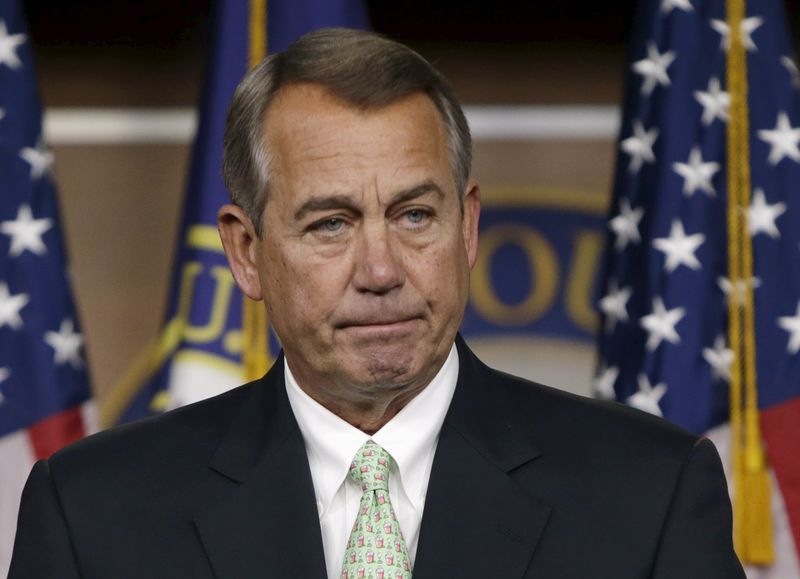By David Lawder
WASHINGTON (Reuters) - Republican U.S. House Speaker John Boehner said on Thursday he would welcome a bipartisan negotiating effort to ease statutory caps on military and domestic spending similar to a deal reached in 2013 after a government shutdown.
Boehner at a news conference gave his clearest endorsement yet of an effort to lift the spending caps this year, even as Congress prepares to pass a Republican budget plan next week that will seek to nominally keep them in place.
"If there's a way to reduce mandatory spending in a way that would provide relief to the sequester, like we did with the Ryan-Murray budget plan, have at it," Boehner said.
Republican Representative Paul Ryan and Democratic Senator Patty Murray in 2013 hammered out a deal that allowed a $63 billion spending increase on military and domestic agencies over the two years ended Sept. 30, paid for by reductions to federal pension benefits, and increased customs fees and other savings.
The across-the-board "sequester" spending caps were put in place by a 2011 budget deal aimed at reining in the $1 trillion-plus annual deficits common at that time. They run through 2021.
Republican congressional aides also said on Thursday that House and Senate Republican negotiators are nearing a deal to work out differences in the budgets they passed last month in each chamber. Both budgets claim to eliminate deficits within 10 years, through deep cuts to social safety programs and by keeping the spending caps in place.
But in a nod to growing pressure from Republicans, the budgets skirted the caps by adding $38 billion to a special war operations account. The budget plans also include provisions that allow for a new round of negotiations to ease spending caps if other savings can be found.
"If such an effort is called for in the budget agreement, and if such an effort can get off the ground, hope springs eternal," Boehner said.
Any such deal would be needed before the next fiscal year starts Oct. 1. The House Appropriations Committee has already begun passing spending bills written to the caps, which would hold discretionary spending flat at about $1 trillion, the same level as a decade ago.
